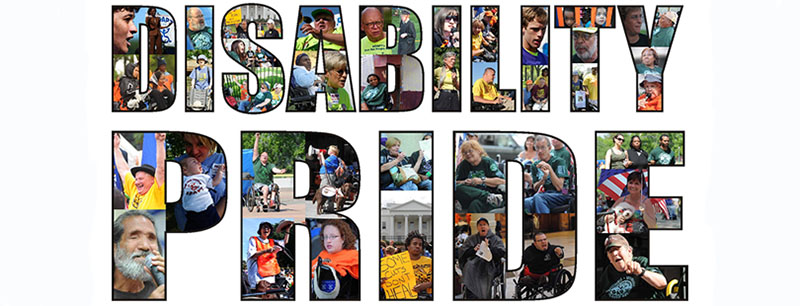In support of National Disability Employment Awareness Month, please enjoy some of our favorite posts engaging with understandings of disability!

Does ‘Going Sighted’ Make Life Better? Undoing the Desire to Cure Blindness in Russia
By Svetlana Borodina
In 2017, two Russian deafblind patients—Grigoriy Ulianov and Antonina Zakharchenko—received retinal implants, or so-called “bionic eyes.” Both patients were selected from a pool of applicants, having met the criteria of acquired blindness through retinitis pigmentosa and a capacity to perceive light but…read more.
Our Digital Selves: What we learn about ability from avatars
By Donna Davis
Imagine sitting on the beach on a beautiful day. The sun is rising and the birds singing. Wisps of clouds gently float by as the surf rhythmically rolls in and out at your feet and the children frolic in the sand. You can almost feel the heat of the sun, only you can’t — because…read more.
“Becoming Blind” in Virtual Reality
By Eva Theunissen
Can technology convey experiences that are not our own, ones we can at the most imagine experiencing from a first person perspective? Furthermore, can technology help us understand the multisensory and deeply emotional qualities of…read more.
As If I Were Blind…
By Rebekah Cupitt
What is an experience and how can it be conveyed and communicated to others? “A focus on “The Experience” signals a technology has been designed with a consideration for the user’s experiences. It is supposed to indicate a technology’s role and contribution to everyday life, and the likelihood…read more.
Becoming More Capable
By Alex Taylor
The anthropological imperative to “take into account difference” and consider how objects “intersect with social worlds, imaginaries and emergent social practices” speaks to my ongoing efforts to engage with the long and troubled relationship between technology and dis/ability. Specifically, it…read more.
Personal Computing and Personhood in Design and Disability
By Meryl Alper
When I try to explain augmentative and alternative communication (AAC) devices to those unfamiliar, I usually start with physicist Stephen Hawking, who has amyotrophic lateral sclerosis (ALS). Hawking speaks using a high-tech computerized AAC device…read more.
‘Inclusive WASH’ – Contested assumptions about bodies and personhood in a Ugandan refugee settlement
By Maria-Theres Schuler
As I skimmed through the first pages of the shiny brochure of the ‘Inclusive WASH’ project, I suddenly recognized some of the people that the leaflet depicted in its photograph-filled spread: Odongo, a Sudanese man with paralyzed legs who pumped water from a borehole; Claire, a…read more.
The Power of Small Things: Trustmarkers and Designing for Mental Health
By Stefan Johansson
At my office we put tennis balls on the legs of the chairs to reduce the noise of the scraping chairs against the parquet floors. They are hard to miss, but they fulfill their purpose. For this reason, I never reflected on what kind of feelings these bright fluorescent yellow balls might evoke…read more.
